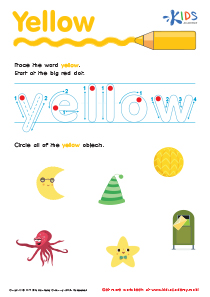Normal English for Beginners Worksheets for Ages 3-6
53 filtered results
-
From - To
Welcome to our "Normal English for Beginners Worksheets for Ages 3-6" webpage! Here, you'll find a curated collection of engaging and interactive worksheets designed specifically for young learners. These resources are perfect for children just starting their journey in learning English as a second language. Our worksheets focus on essential vocabulary, simple sentence structures, and fun activities that promote language acquisition while keeping little ones captivated. With colorful illustrations and age-appropriate content, these worksheets cater to the developmental needs of preschoolers. Explore our vast selection today and watch your child's English skills blossom in a fun and supportive environment!
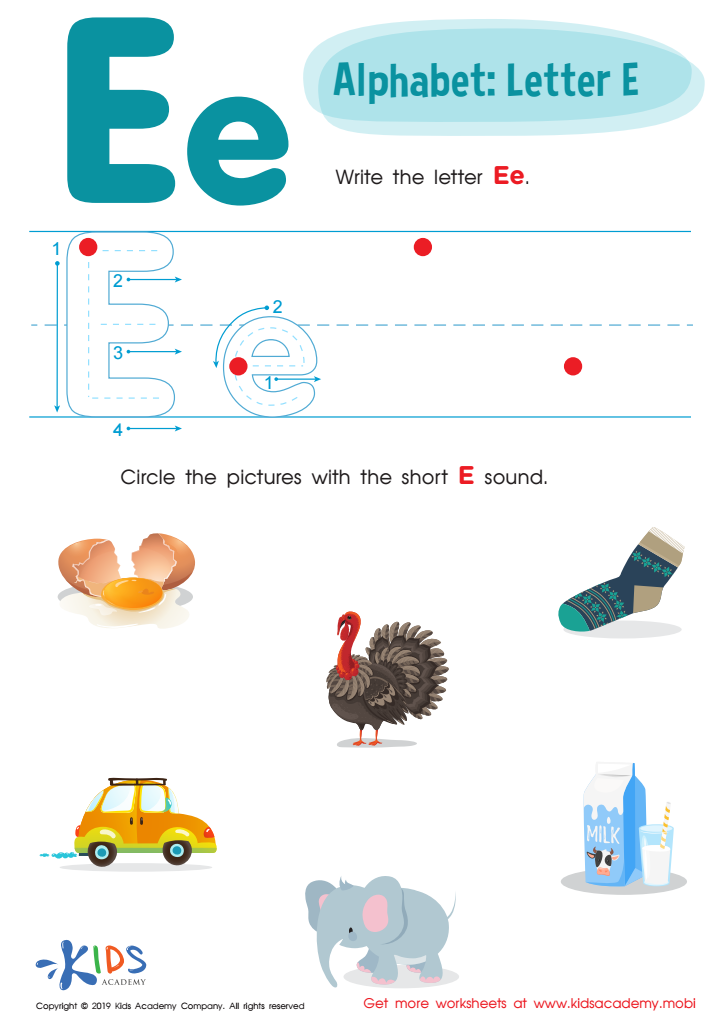

Letter E Tracing Worksheet
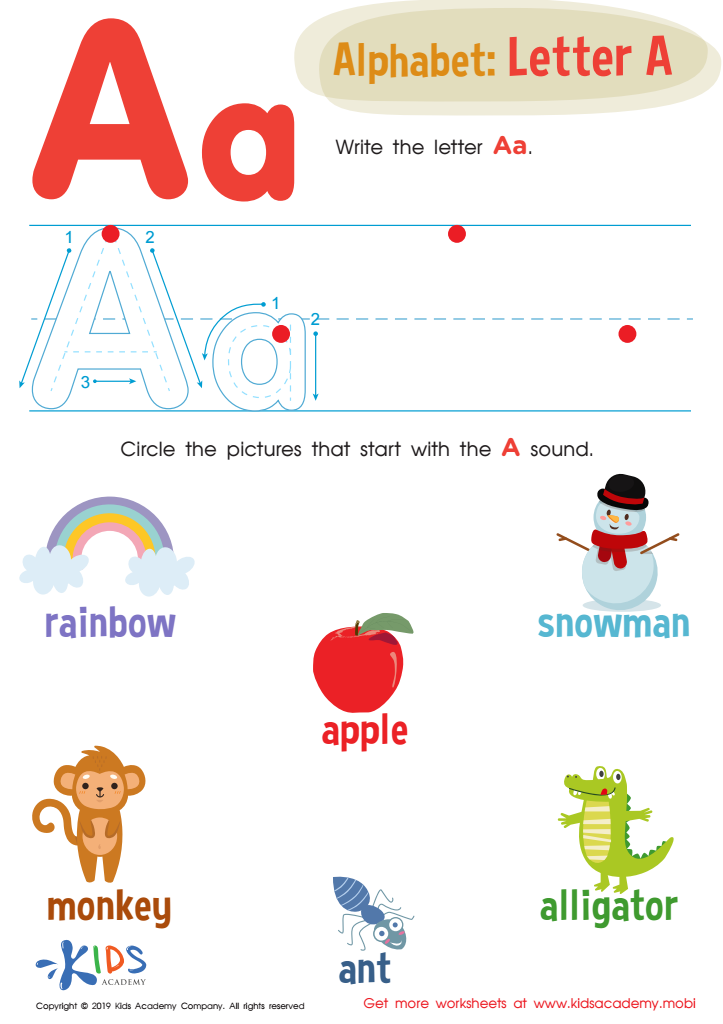

Letter A Tracing Worksheet
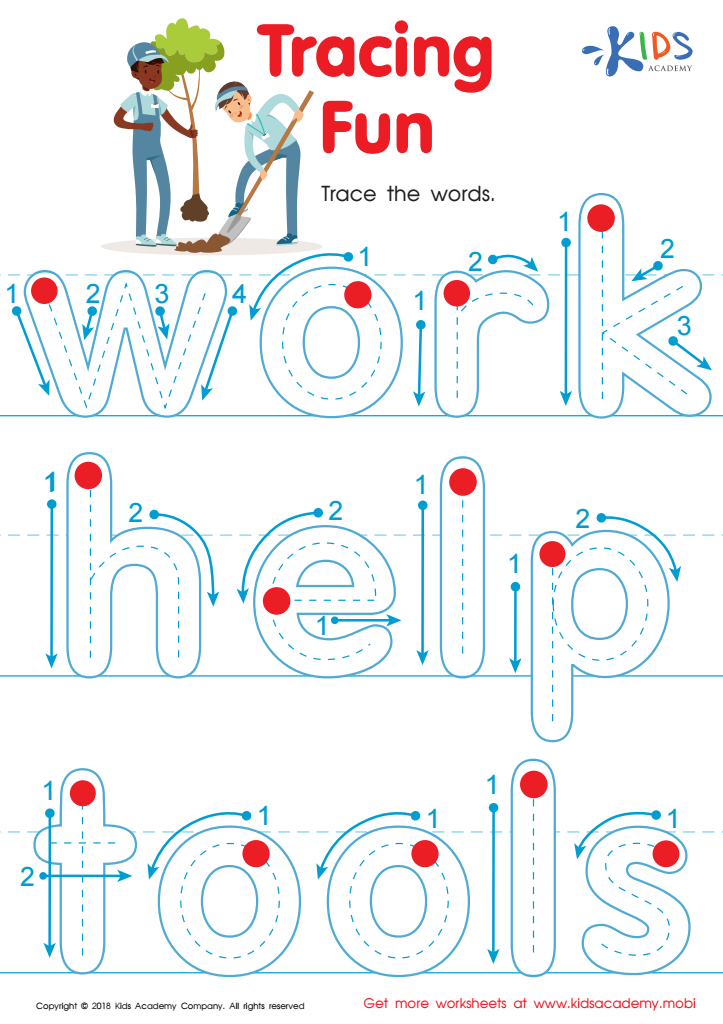

Tracing Fun Worksheet
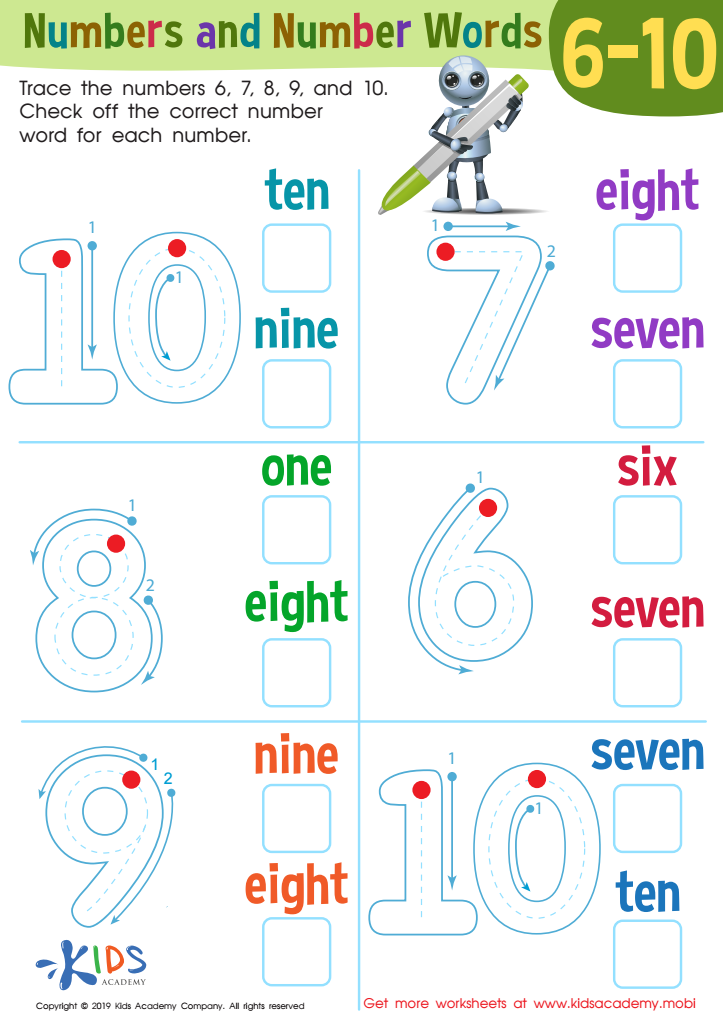

Numbers and Number Words 6–1 Worksheet
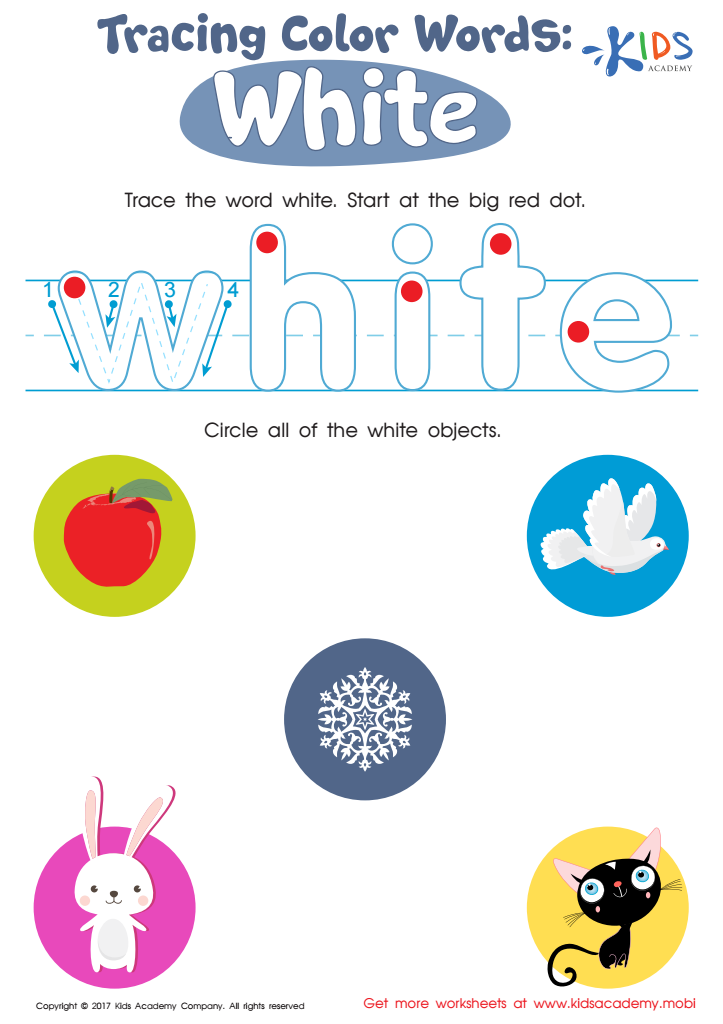

White Tracing Color Words Worksheet
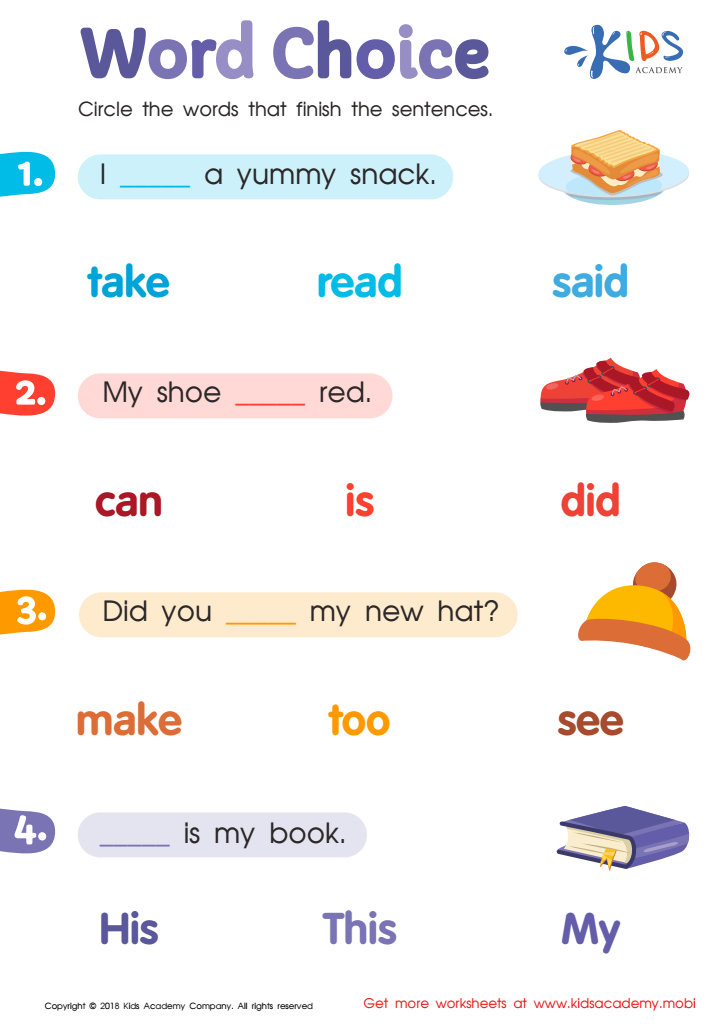

Word Choice Worksheet
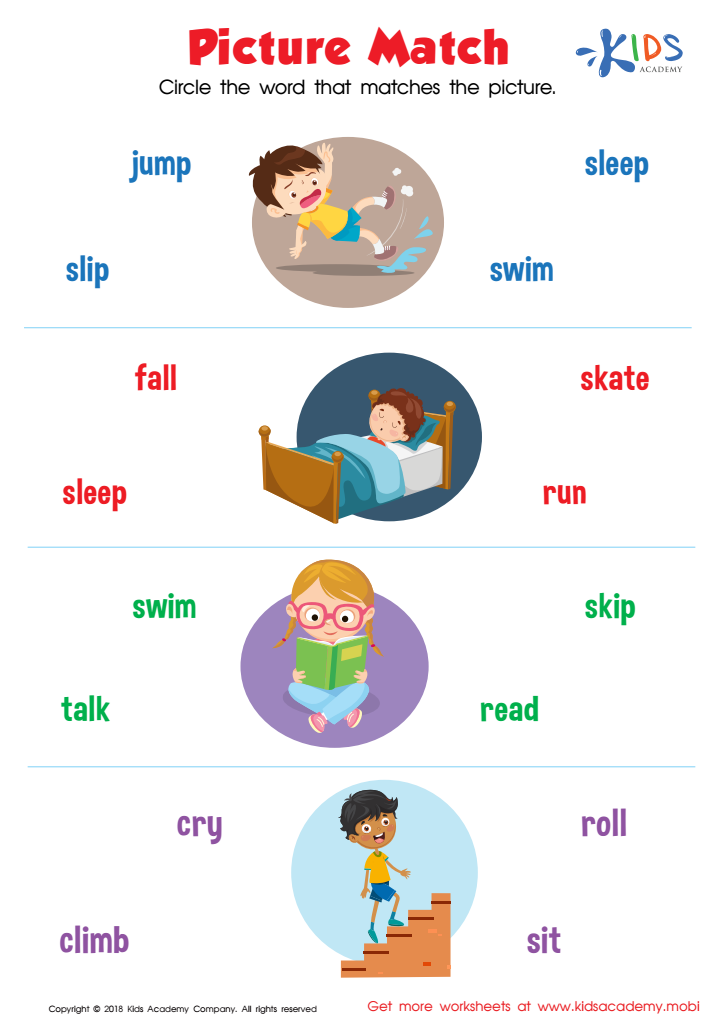

Picture Match Worksheet
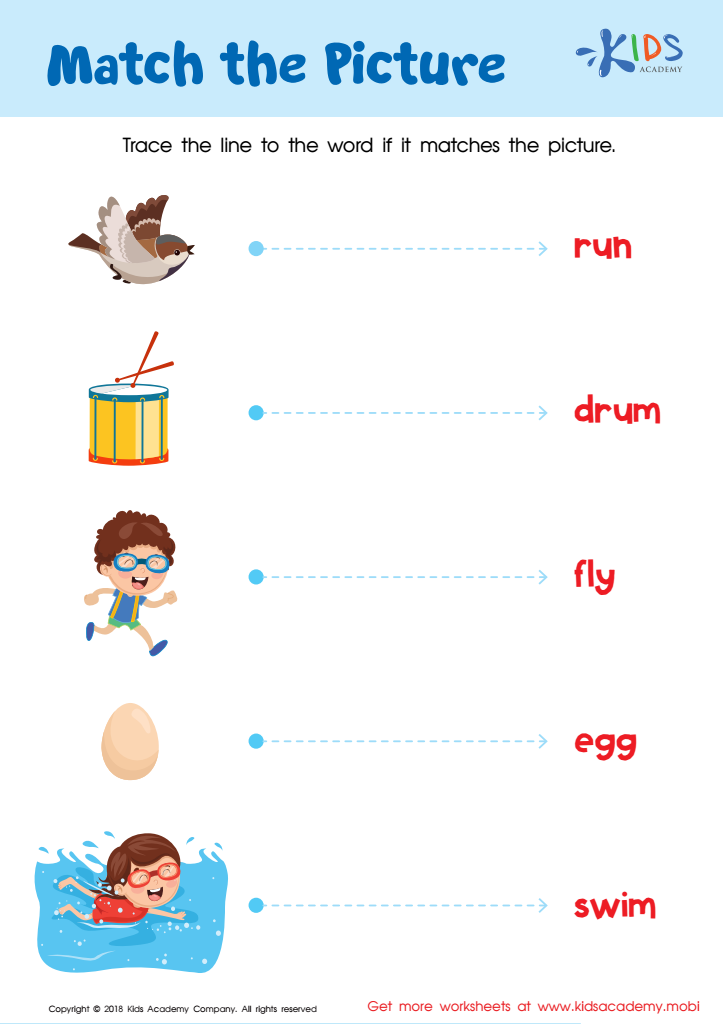

Match the Picture Worksheet
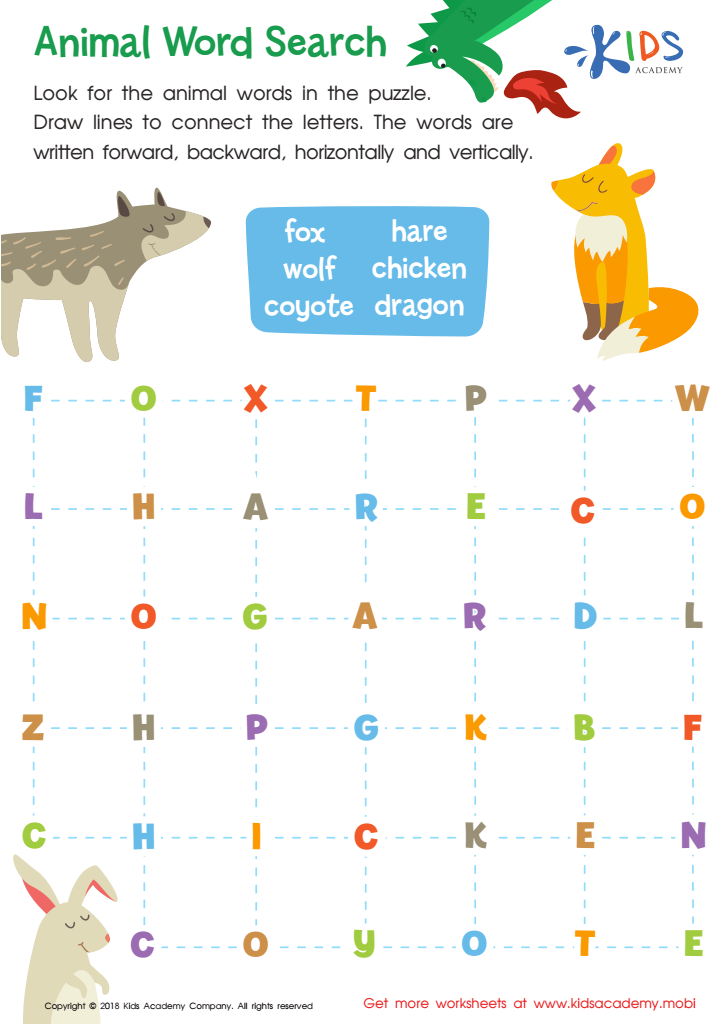

Animal Word Search Worksheet
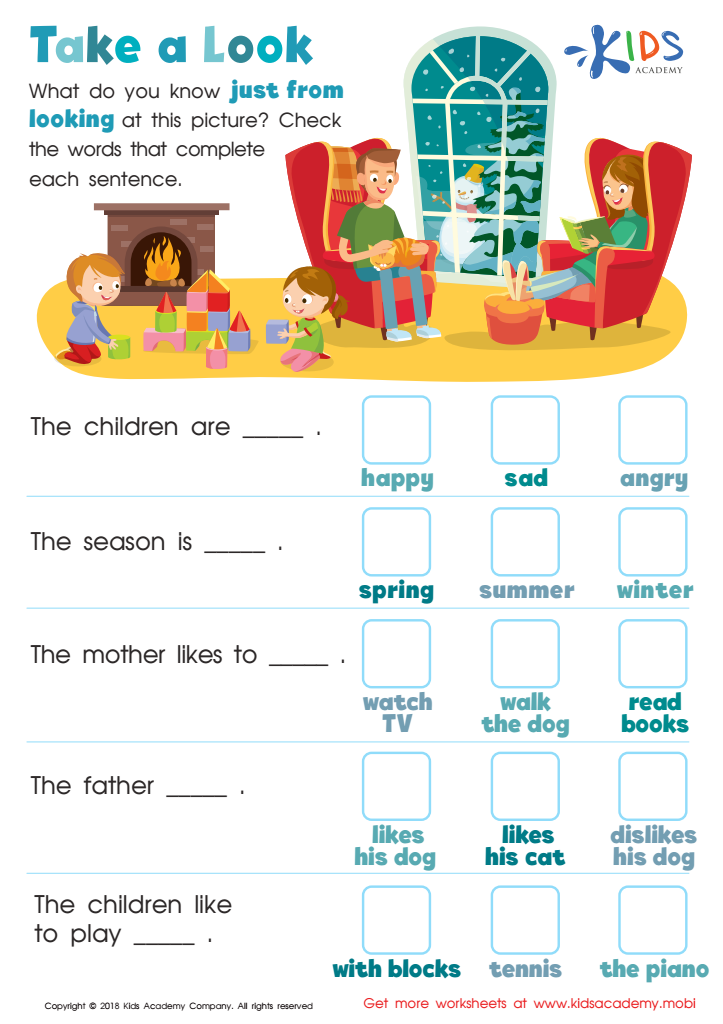

Take a Look - Part 1 Worksheet
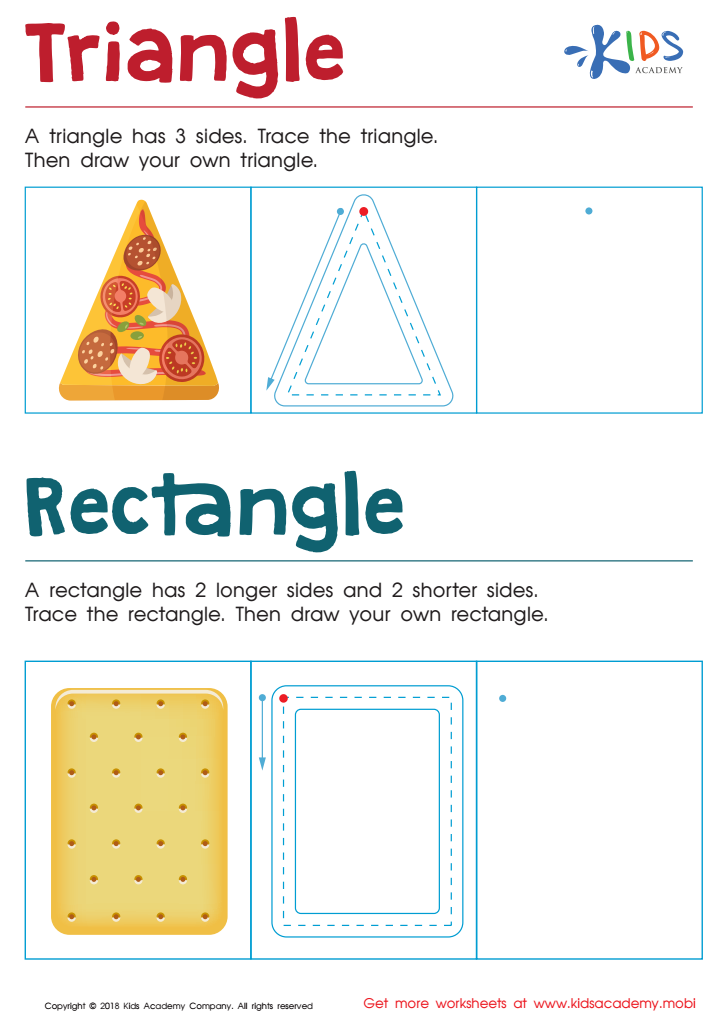

Triangle Rectangle Worksheet
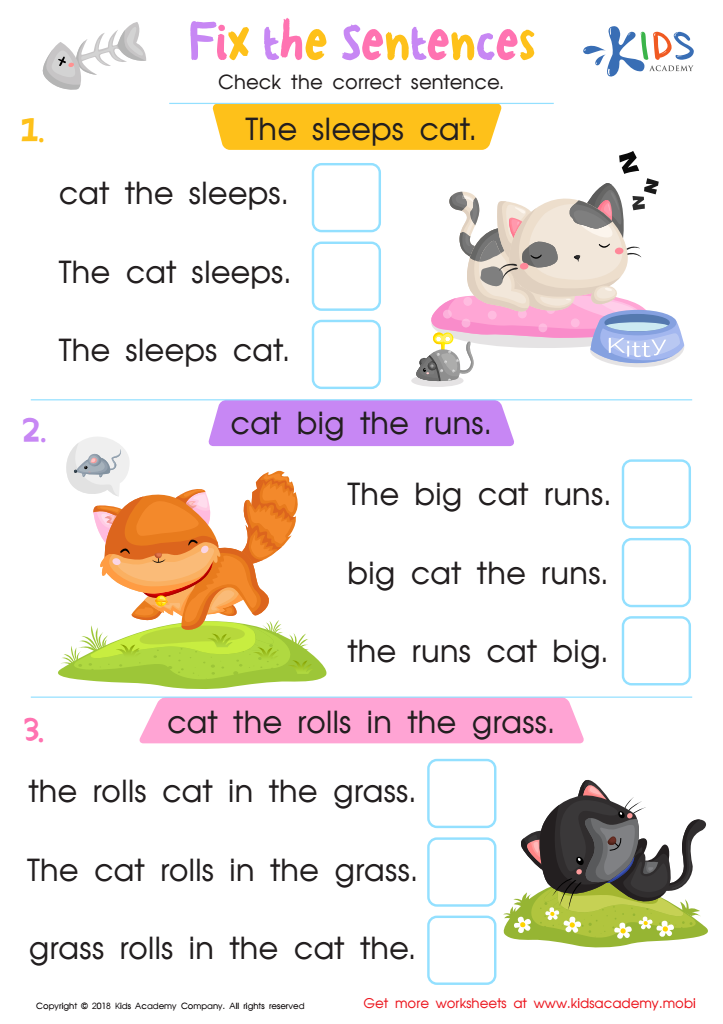

Fix the Sentences Worksheet
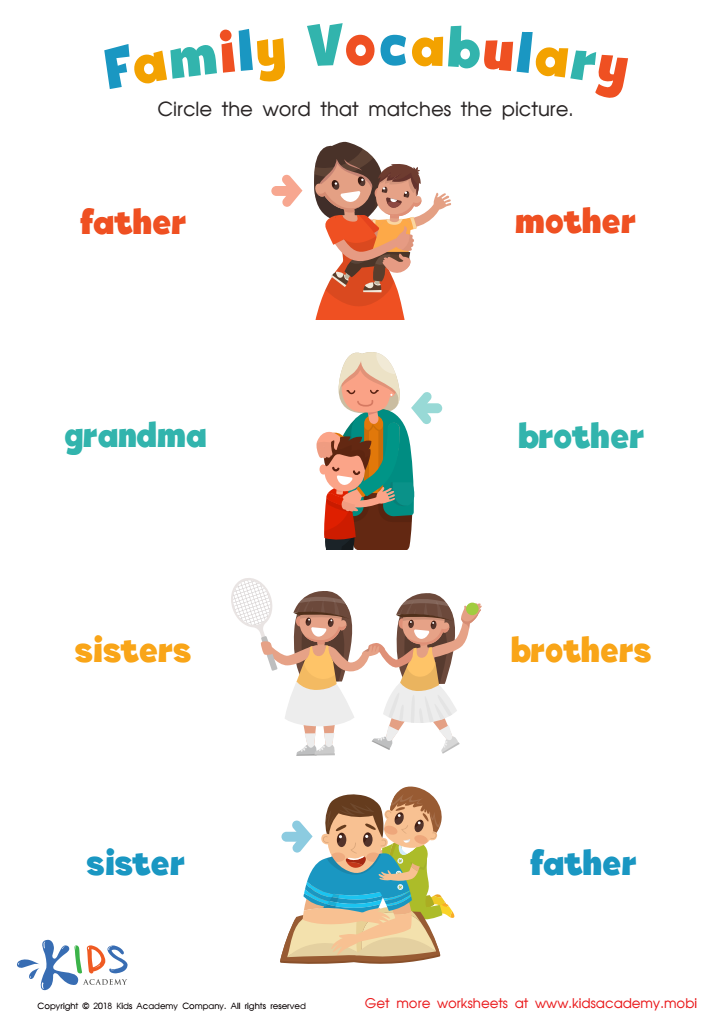

Family Vocabulary Worksheet
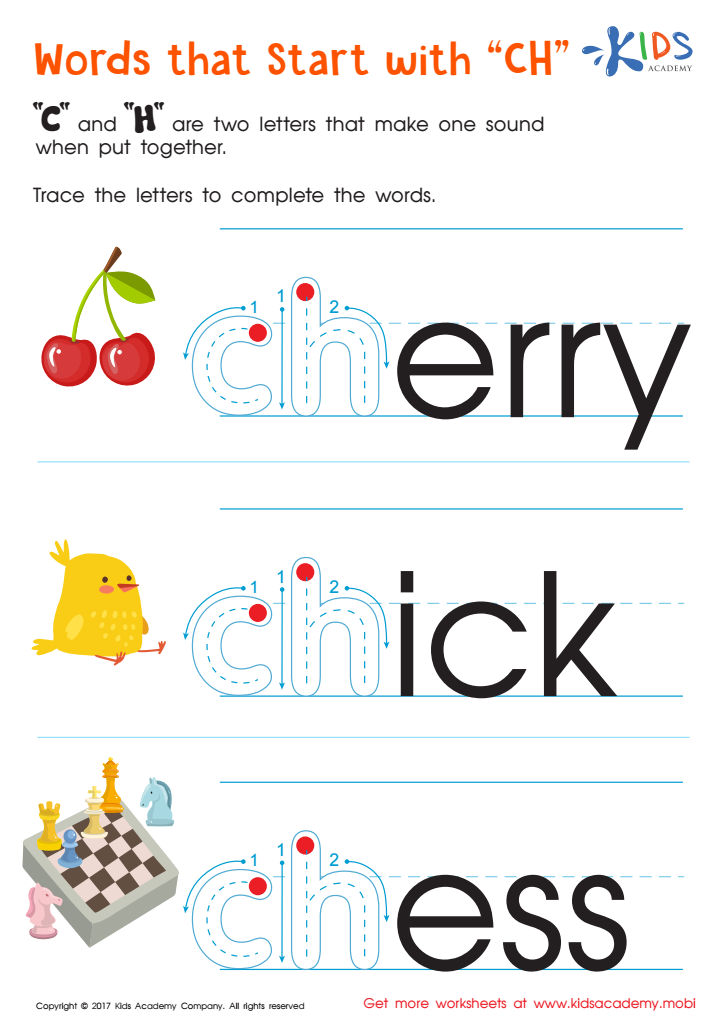

Words That Start with "ch" Spelling Worksheet
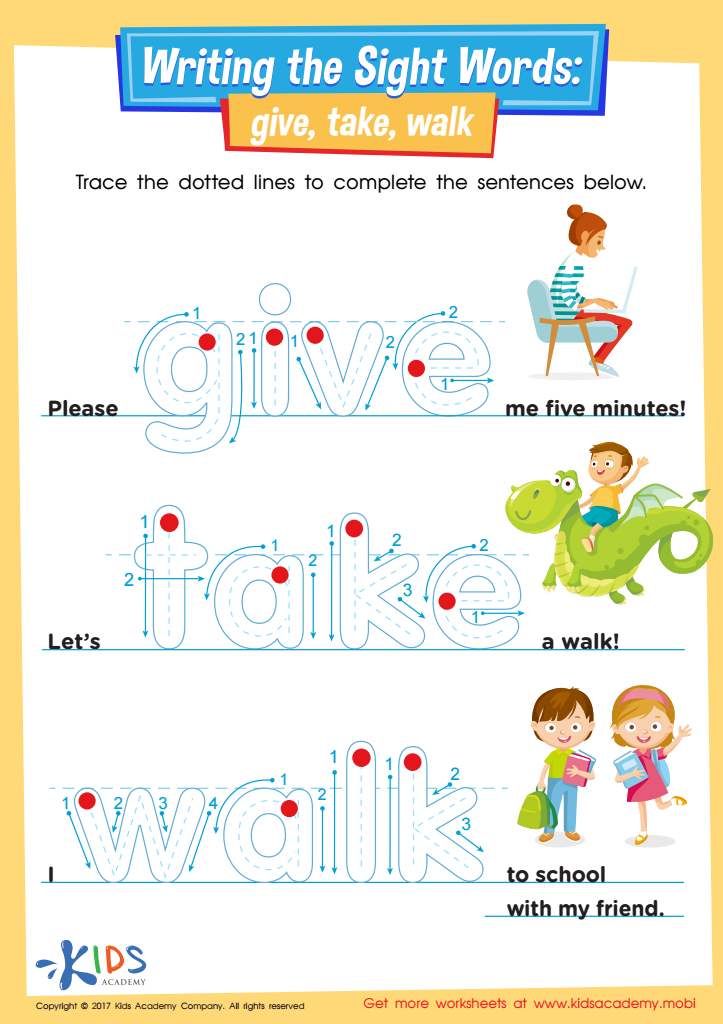

Give, Take, Walk Printable Sight Words Worksheet
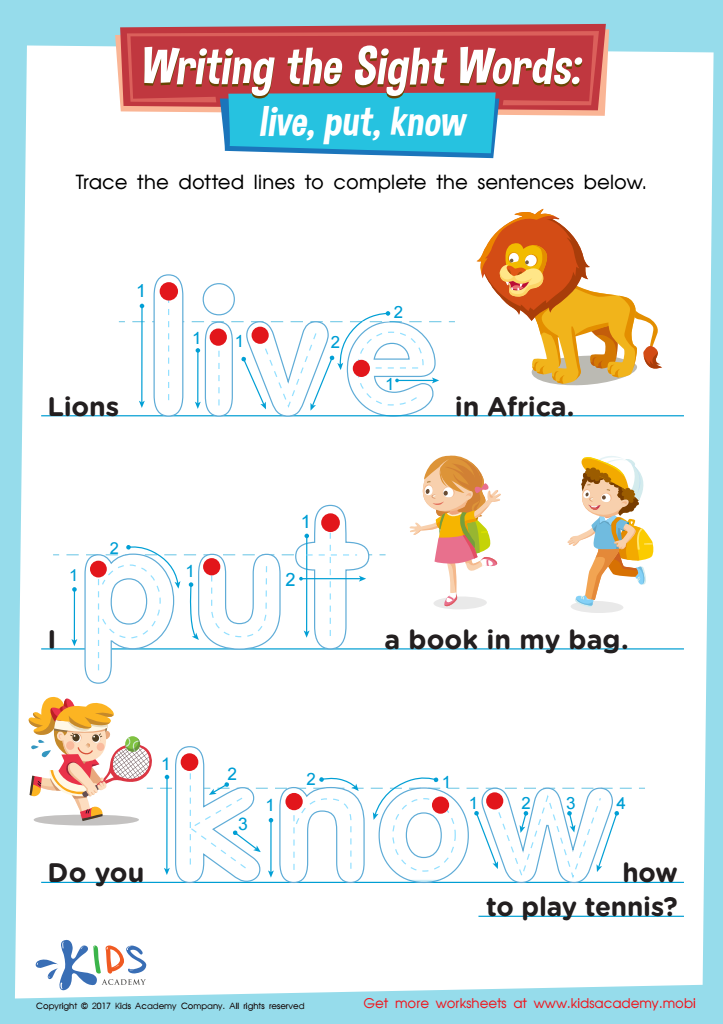

Live, Put, Know Printable Sight Words Worksheet
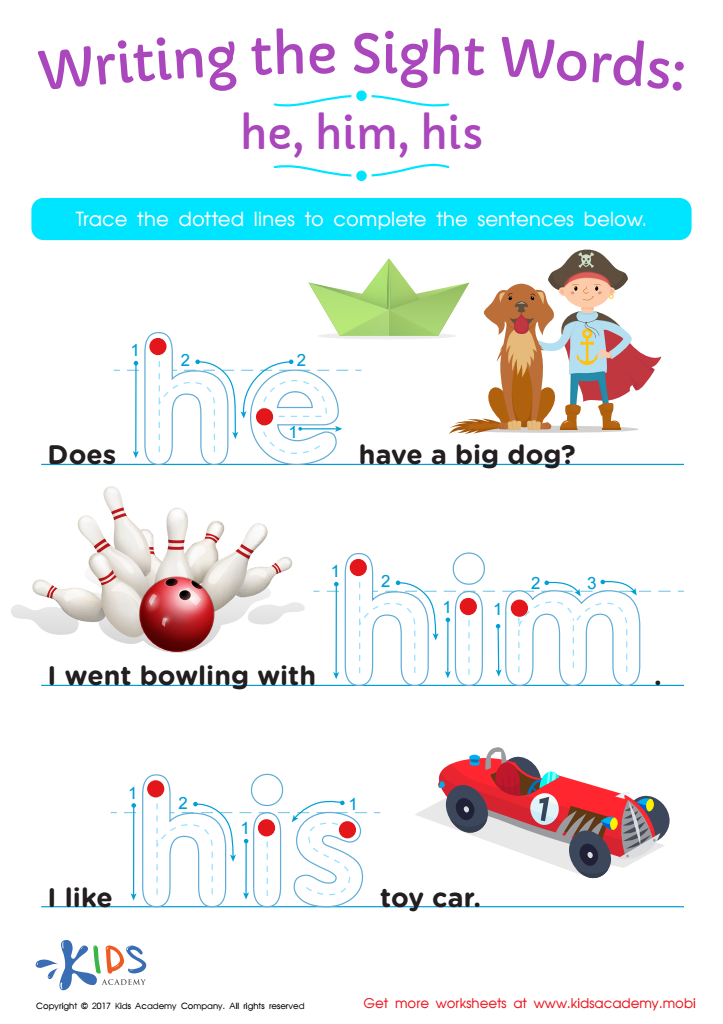

He, Him, His Printable Sight Words Worksheet
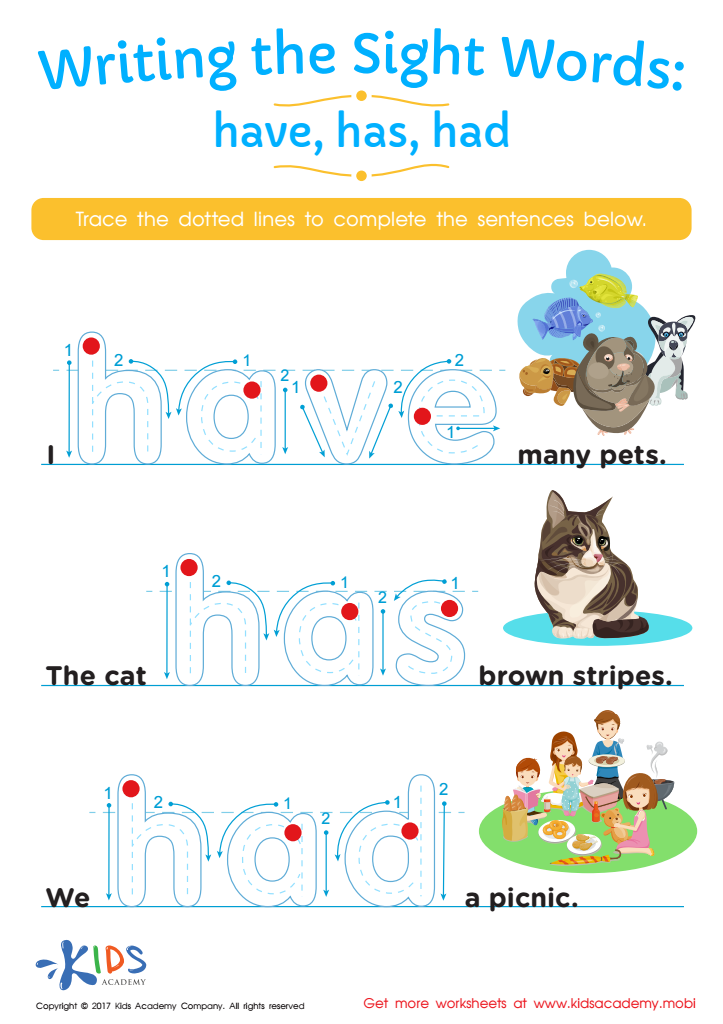

Have, Has, Had Worksheet Sight Words Worksheet
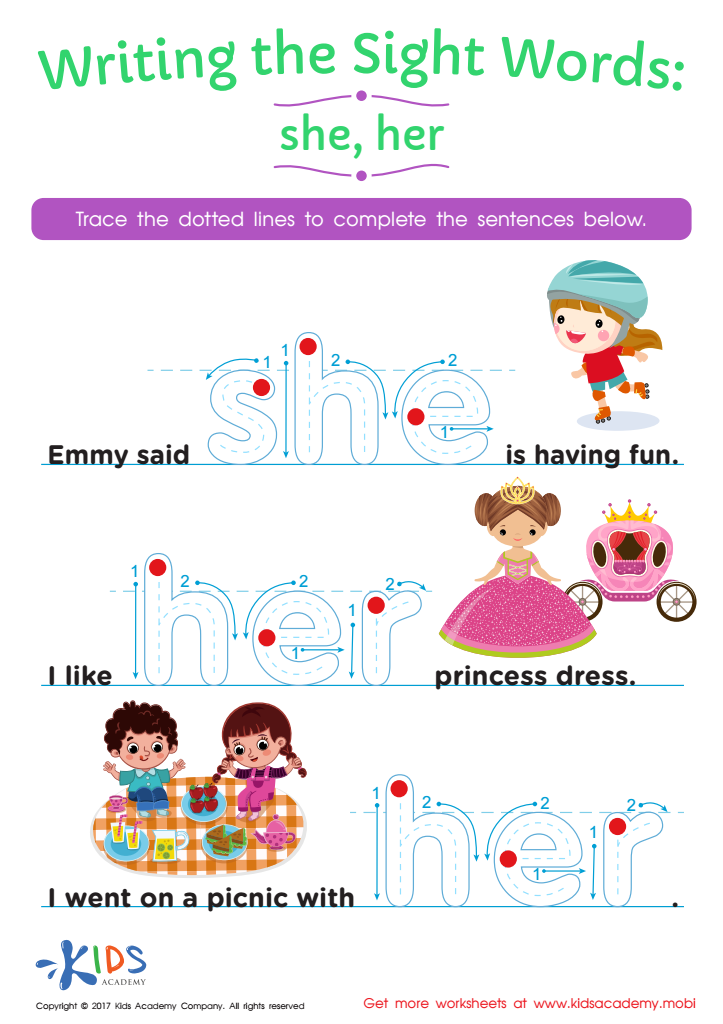

She, Her Printable Sight Words Worksheet


Letter P Tracing Page
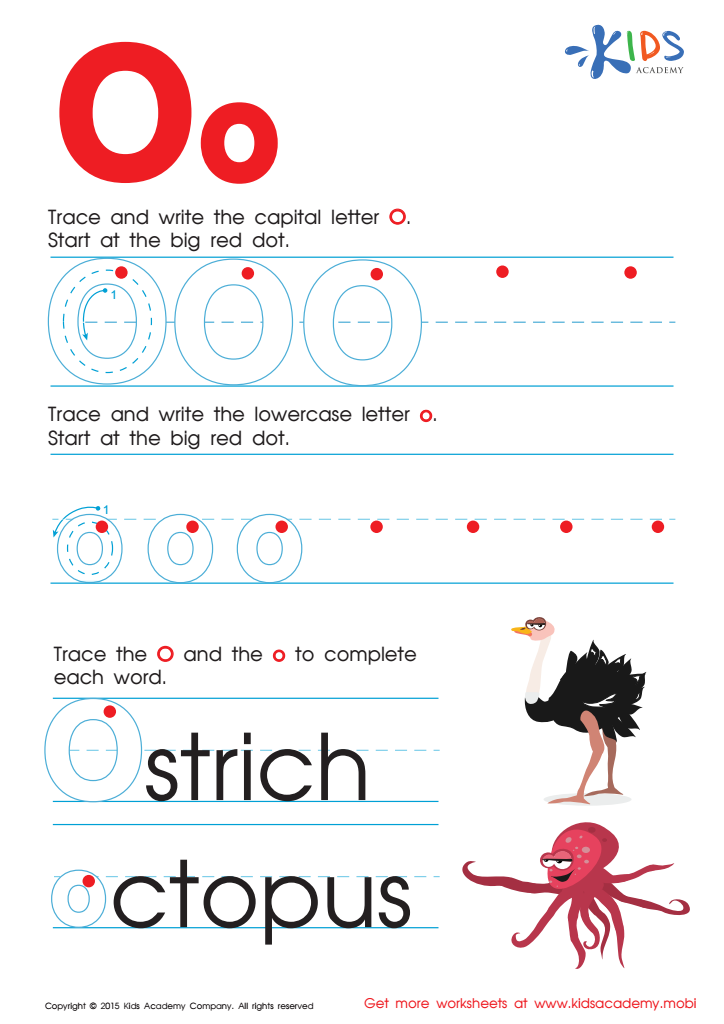

Letter O Tracing Page


Letter H Tracing Page
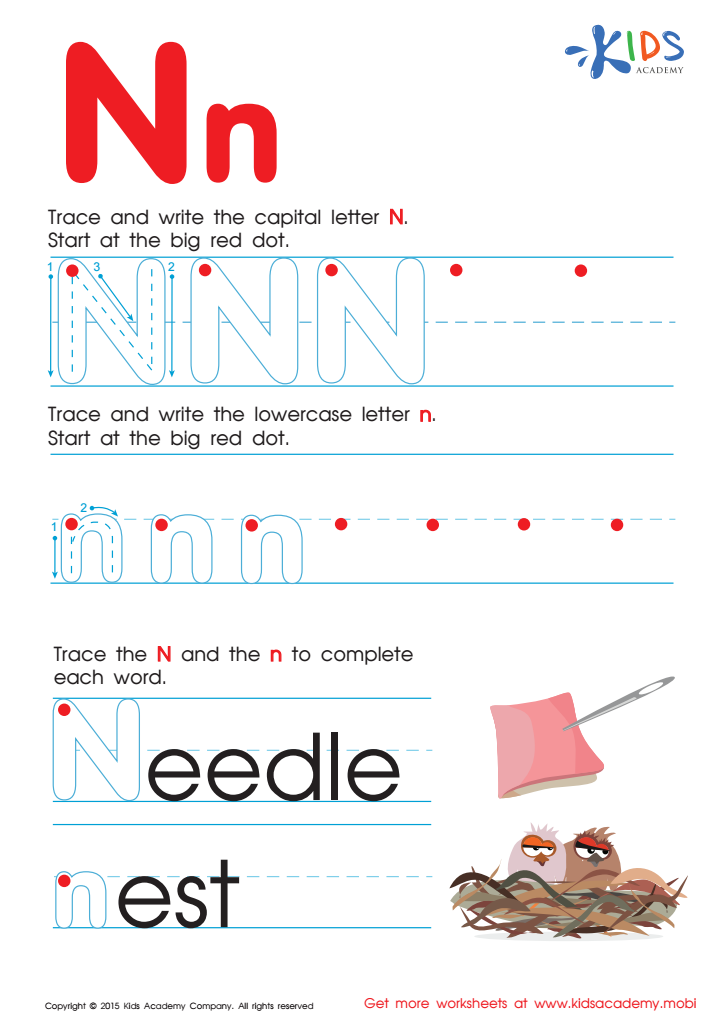

Letter N Tracing Page
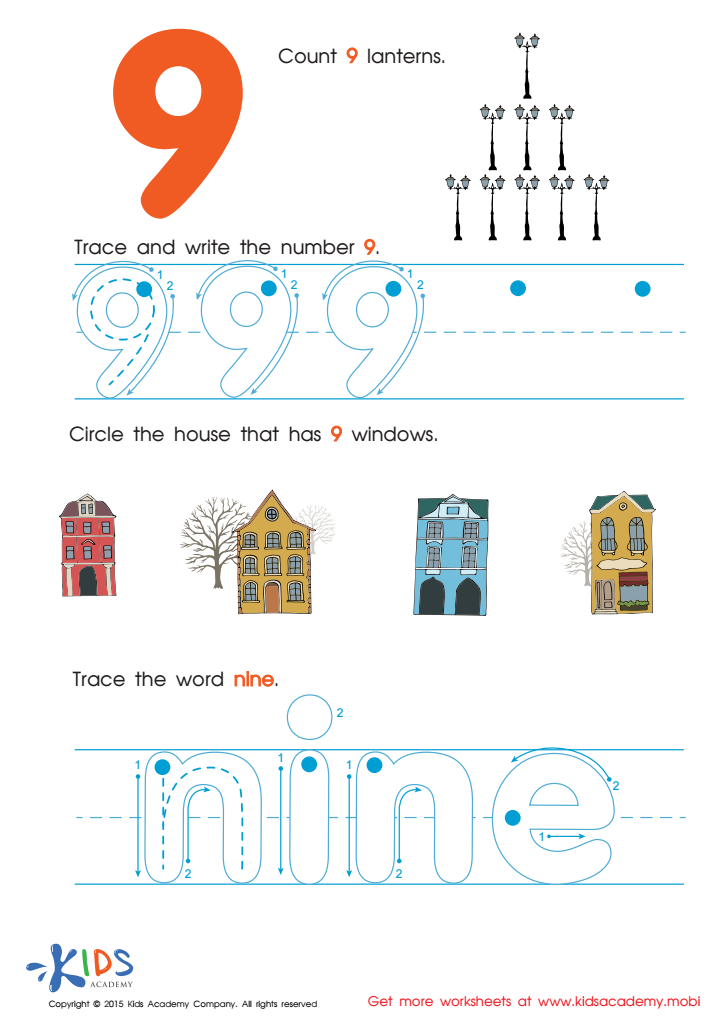

Tracing And Learning to Write Number 9 Worksheet
Parents and teachers should prioritize "Normal English for Beginners" for children ages 3-6 for various compelling reasons. First, this foundational stage in early language development plays a critical role in shaping a child's communication skills and cognitive growth. Introducing children to everyday English concepts and vocabulary fosters their ability to express themselves clearly, enhancing both their social interactions and academic readiness.
Second, normalizing language through relatable and typical contexts helps young learners connect with their environment, making learning both engaging and relevant. This approach can spark curiosity about the world, promoting a lifelong love for learning. Additionally, age-appropriate literacy skills are crucial, as they serve as a springboard for future reading and writing abilities.
Furthermore, utilizing normal English aids in inclusivity, accommodating diverse backgrounds and learning styles, thus ensuring all children feel represented in their educational journey. Teachers and parents can also promote confidence in language use, as children learn to articulate their thoughts and feelings effectively.
In conclusion, advocating for "Normal English for Beginners" is essential for nurturing a child's early literacy, supporting their social-emotional development, and preparing them for academic success. It fosters an enriching environment where young learners can thrive.
 Assign to My Students
Assign to My Students










